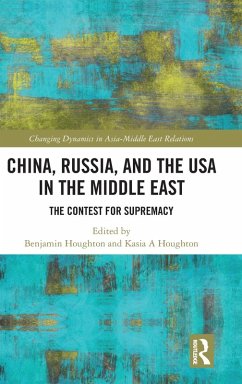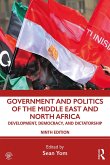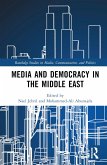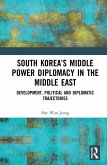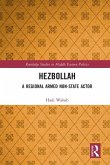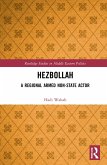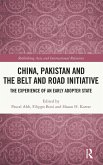The shift in international relations towards multipolarity has had profound implications across the world, but particularly in highly penetrated regions such as the Middle East. This book explores the rivalry between the USA, Russia, and China in the region, investigating its effects and assessing the influence of regional actors and issues.
Each chapter offers a comprehensive analysis of three core questions: How does global power competition manifest itself? How does it impact regional political, economic, and security dynamics? How do regional actors and issues influence the trajectory and dynamics of global power competition?
Expert international contributors take a country case study approach to consider these questions and investigate the most pressing contemporary events, issues, and trends in Middle Eastern politics. Tackling transregional and global issues and themes, they analyse the convergence, divergence, and competition between global powers in managing threats and interests such as terrorism, energy and cyber security, nuclear non-proliferation, conflict resolution, and warfare.
This volume will appeal to scholars and students of international relations, great power competition, China, Russia, the USA, and the Middle East.
Chapter 3 of this book is freely available as a downloadable Open Access PDF at http://www.taylorfrancis.com under a Creative Commons Attribution-Non Commercial-No Derivatives (CC-BY-NC-ND) 4.0 license.
Each chapter offers a comprehensive analysis of three core questions: How does global power competition manifest itself? How does it impact regional political, economic, and security dynamics? How do regional actors and issues influence the trajectory and dynamics of global power competition?
Expert international contributors take a country case study approach to consider these questions and investigate the most pressing contemporary events, issues, and trends in Middle Eastern politics. Tackling transregional and global issues and themes, they analyse the convergence, divergence, and competition between global powers in managing threats and interests such as terrorism, energy and cyber security, nuclear non-proliferation, conflict resolution, and warfare.
This volume will appeal to scholars and students of international relations, great power competition, China, Russia, the USA, and the Middle East.
Chapter 3 of this book is freely available as a downloadable Open Access PDF at http://www.taylorfrancis.com under a Creative Commons Attribution-Non Commercial-No Derivatives (CC-BY-NC-ND) 4.0 license.
The Middle East is no stranger to great power competition, but at a time of increased global instability, the region once again occupies a prominent role within the machinations of global politics. This timely volume offers invaluable insights into the dynamics of this competition and how it shapes both regional and global politics. It is essential reading for those seeking to understand the contours and trajectories of the Middle East's role in global politics in the coming decades.
- Professor Simon Mabon, Lancaster University
A very timely volume about great power competition in the Middle East packed with profound insights and sharp analysis. A must-read for scholars and policy practitioners.
- Professor Hongda Fan, Shanghai International Studies University
This stimulating collection addresses what has become the main feature of Middle East politics, the competition of the great powers over the region, and how regional states manoeuvre among these powers to maximise their autonomy and security. The volume systematically addresses the issues and actors, affording the reader an in-depth understanding of MENA's current political dynamics and its role in the global great power struggle.
- Professor Raymond Hinnebusch, University of St Andrews
- Professor Simon Mabon, Lancaster University
A very timely volume about great power competition in the Middle East packed with profound insights and sharp analysis. A must-read for scholars and policy practitioners.
- Professor Hongda Fan, Shanghai International Studies University
This stimulating collection addresses what has become the main feature of Middle East politics, the competition of the great powers over the region, and how regional states manoeuvre among these powers to maximise their autonomy and security. The volume systematically addresses the issues and actors, affording the reader an in-depth understanding of MENA's current political dynamics and its role in the global great power struggle.
- Professor Raymond Hinnebusch, University of St Andrews

